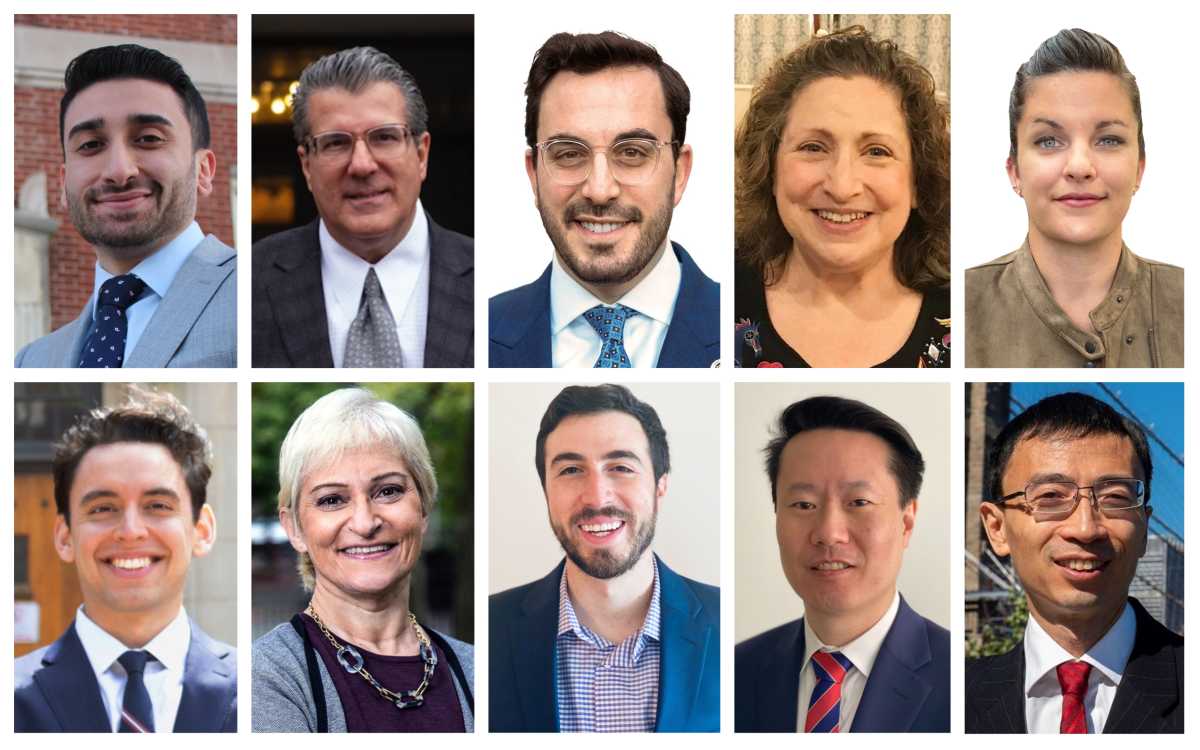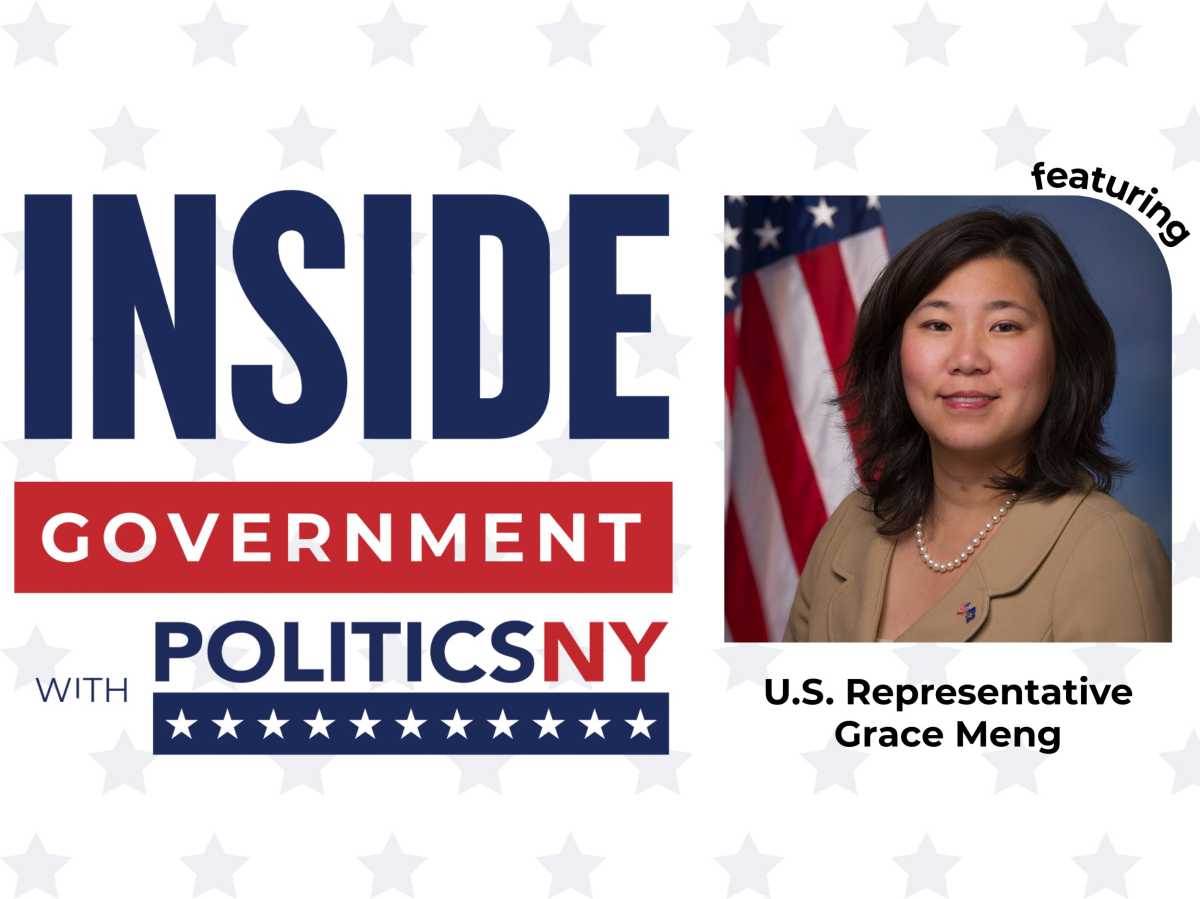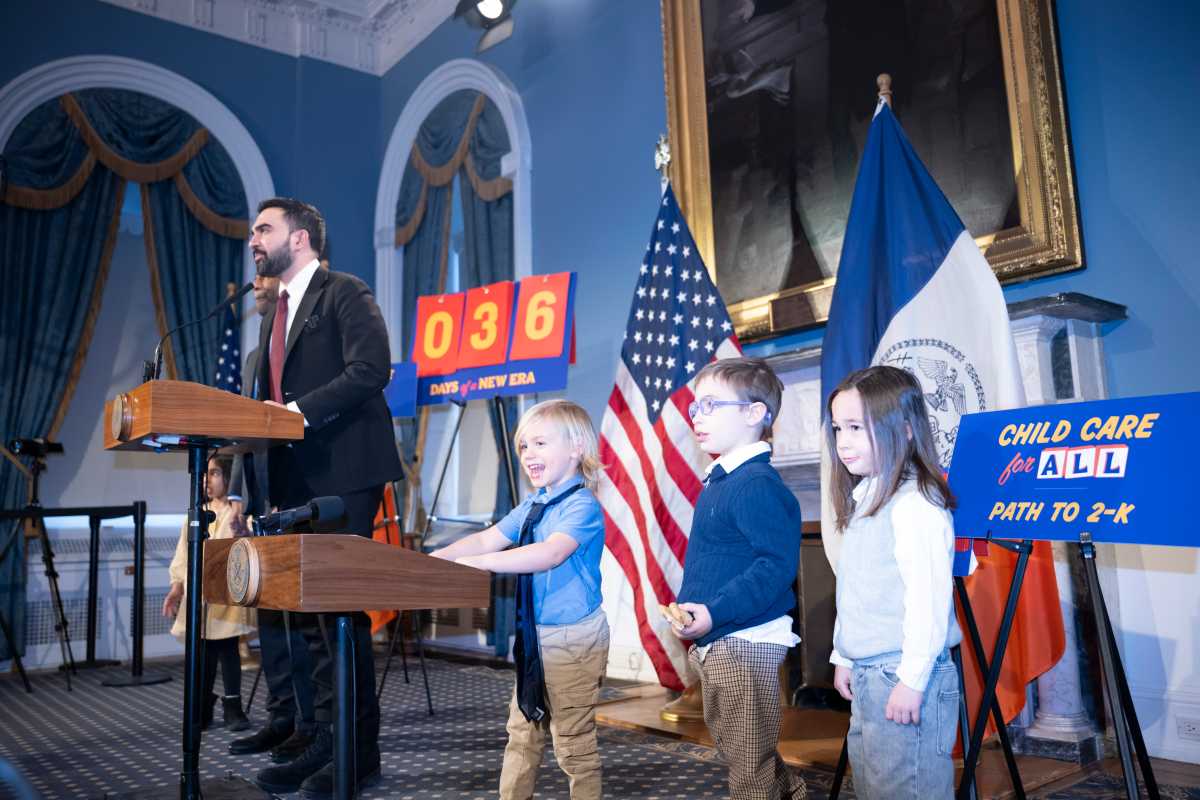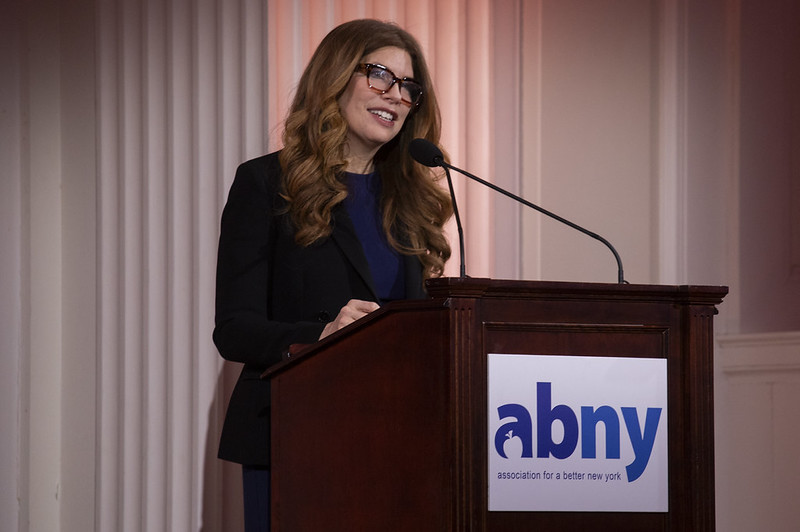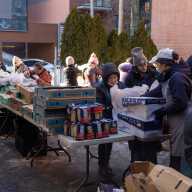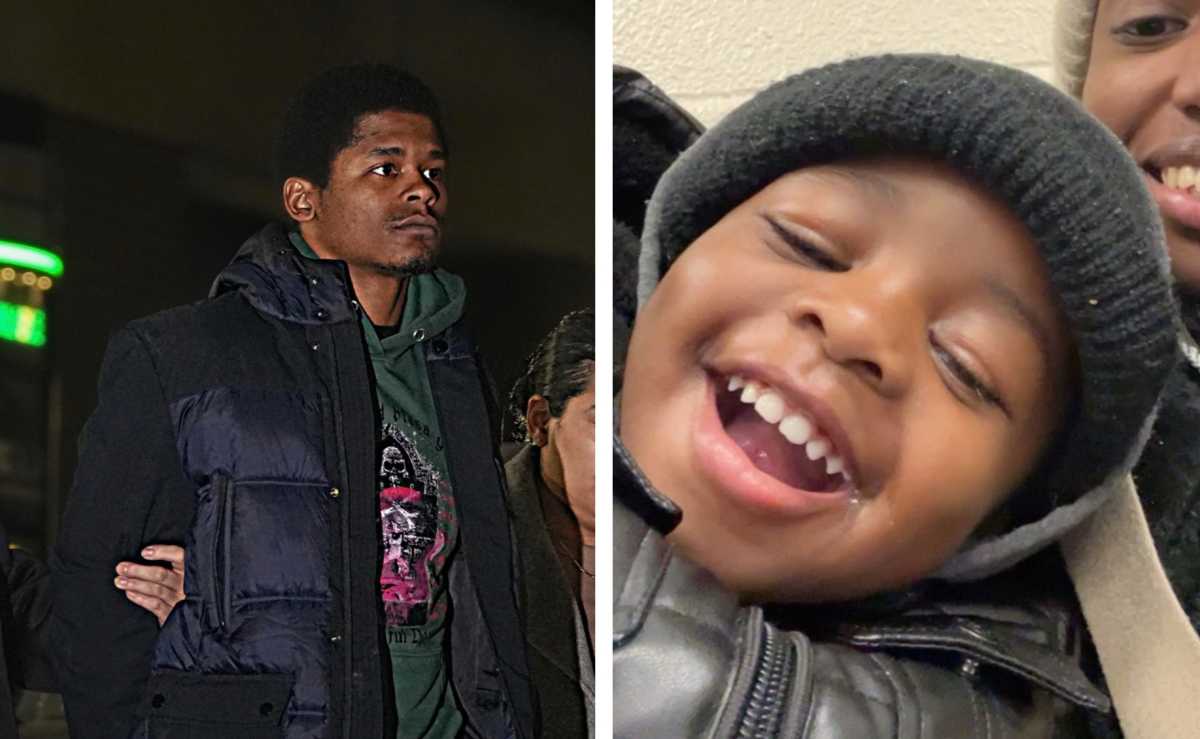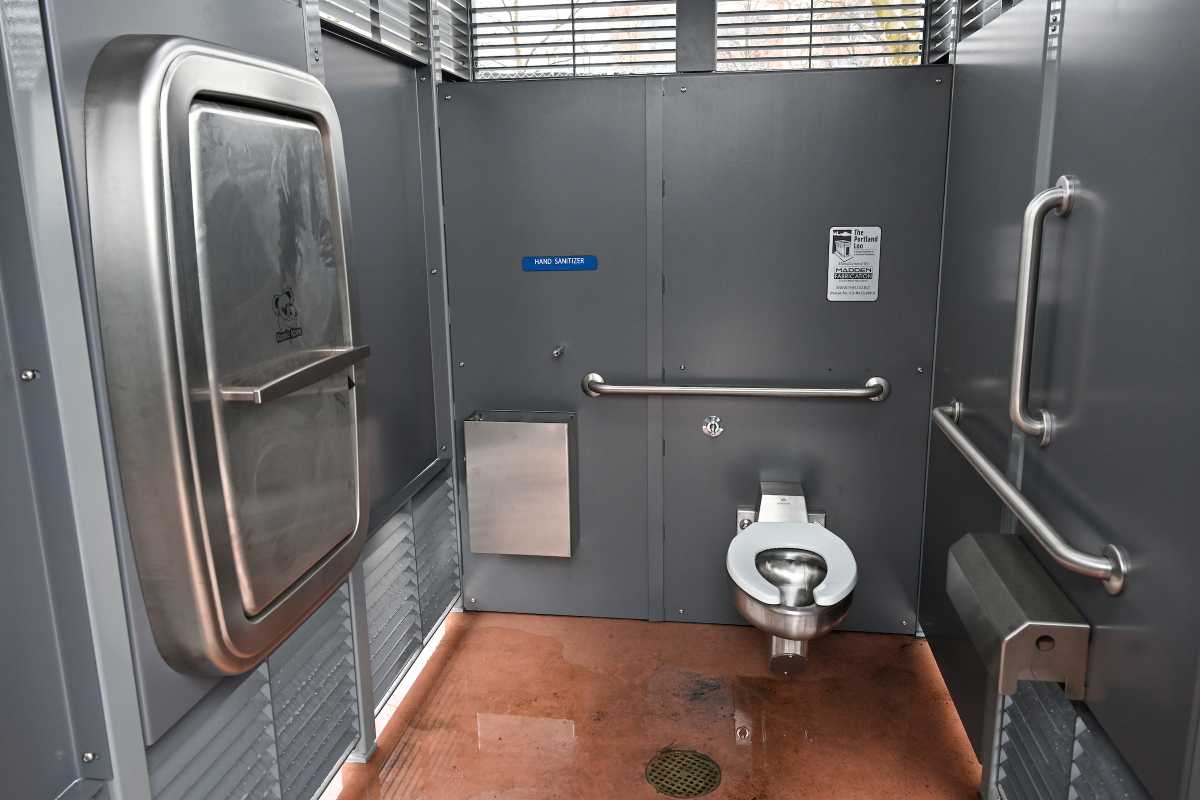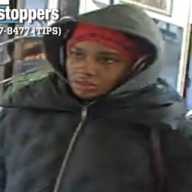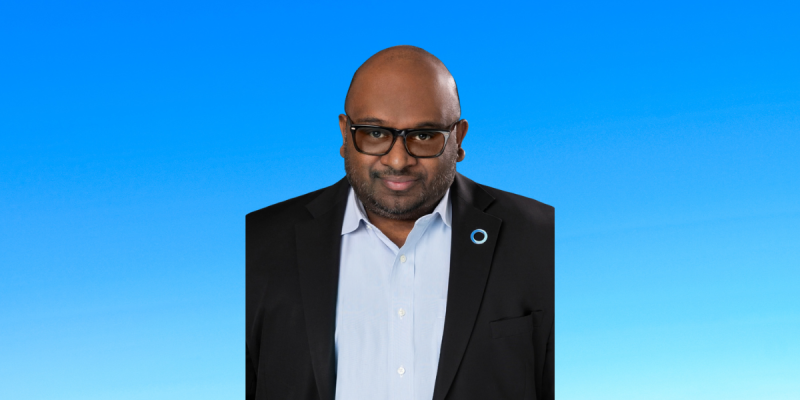There are 12 candidates running to represent District 29 in the City Council this year. There are a total of 11 Democratic candidates and one Republican candidate in this year’s race.
The district, which encompasses Rego Park, Forest Hills, Kew Gardens and Richmond Hill, has been represented in the city’s legislative body by Karen Koslowitz, who was elected to office first in 1991 and again in 2009.
Like many other council members in Queens and across the city, Koslowitz will be term-limited out of office this year.
The winner of November’s general election will represent a district facing major community pushback against Mayor Bill de Blasio’s borough-based jail plan, which includes placing a jail in Kew Gardens.
QNS sent five questions to each candidate running for the District 29 City Council seat including Democrats David Aronov, Evan Boccardi, Avi Cyperstein, Sheryl Fetik, Aleda Gagarin, Eliseo Labayen, Marcelle Lashley-Kabore, Lynn Schulman, Douglas Shapiro, Edwin Wong and Donghui Zang and Republican Michael Conigliaro. 10 of the 12 candidates responded.
See their answers, listed alphabetically, below.
David Aronov

QNS: What, in your opinion, are the top three most pressing issues in your district?
Aronov: COVID-19 recovery. We must ensure we get our fair share. This includes investing in our hospitals, saving our small businesses and an equitable COVID-19 vaccine distribution. Fully funding our schools and ensuring educational opportunity for all. We need to push for our local schools to receive the $17.5 million in funding owed from the state, expand 3-K and Pre-K, expand Gifted and Talented programs and build a new middle school in Council District 29. Supporting our seniors by fully funding senior centers, expanding eligibility and accessibility for home care and streamlining the process to apply for benefits.
QNS:What aspect of your background speaks best to your abilities as a City Council member?
Aronov: I’m a first-generation American, community activist and nonprofit founder, who has spent the last decade fighting for the people of this district. I will be ready on day one to help us recover from this crisis because I understand the political system, I’m not afraid to fight back against the establishment, and I’ve been on the ground doing the work. As someone who has held leadership roles in both, government and the nonprofit world, I have been dedicated to every part of this district and have reached out to every part of this community. Our city’s recovery cannot leave anyone behind. In the City Council, I will continue fighting for our fair share.
QNS: What do you love most about your district?
Aronov: I love the diversity and feel of a tight-knit family. People in this district care for each other and show up in times of need for one another. Growing up, I would spend weekends at my family’s small business in Kew Gardens or at the P.S. 175 handball court with my cousins and friends. During the height of the COVID-19 pandemic, I joined so many of my neighbors to distribute groceries, deliver meals and give away thousands of masks to individuals and to small businesses. We took care of each other like family.
QNS: Which one of your opponents will you be ranking second on your ballot and why?
Aronov: I haven’t made a decision on who I’ll be ranking second yet. I want it to be someone I know will advocate for every single person in this district, including historically underrepresented groups, and has the experience necessary to navigate the city’s bureaucracy. I also want to make sure the candidate prioritizes making the Council office more accessible and focuses on constituent services.
QNS: District 29 includes Kew Gardens, which the mayor included in the borough-based jail plan. What is your stance on the proposed Kew Gardens jail? If you agree with it, why? If not, is there an alternative that you support?
Aronov: I am opposed to the borough based jail in Kew Gardens. Closing Rikers and opening a new jail doesn’t change the culture of the Rikers system. We should be using the funds allocated to invest in our communities, including schools, workforce development, and healthcare. We can use existing facilities while also ensuring speedier trials. No one should be waiting several months or a year to have their day in court. New York City should not be in the business of building new jails.
Michael Conigliaro
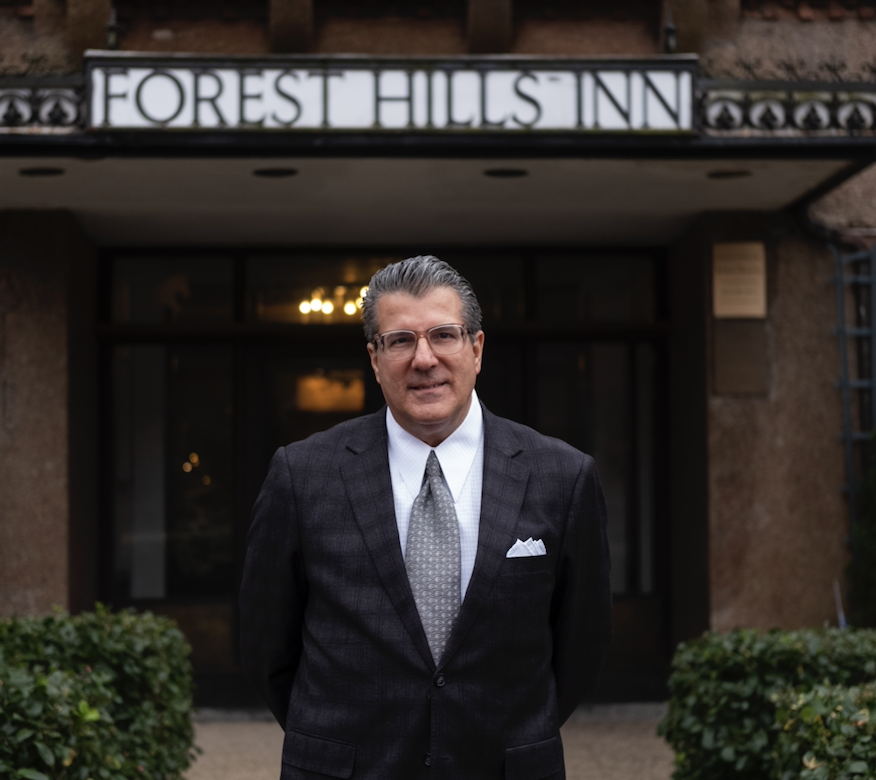
QNS: What, in your opinion, are the top three most pressing issues in your district?
Conigliaro: Our top three issues are to maintain law and order in our neighborhoods, to preserve our children’s educational opportunities and to protect quality of life. Our current members do not seem too concerned with preserving our communities. This is the failure of a one-party city government. Rather, they are focused on recklessly defunding law enforcement, abolishing police from schools and letting crime run rampant in our neighborhoods. The City Council is more concerned with pursuing their own radical agenda that is causing us to backslide into a time when criminals had more rights than working, everyday citizens.
QNS:What aspect of your background speaks best to your abilities as a City Council member?
Conigliaro: Working in the field of law and as the former executive director of the Queens County Republican Party, I know what it’s like to be in a position of leadership. I have co-founded the Forest Hills and Rego Park Graffiti Cleanup Initiative, where we work with local police precincts to remove graffiti from businesses and residential buildings. We do this to promote the quality of life in our district. We have volunteers from all different ages, cultural backgrounds and political beliefs to help beautify our community and not let the vandals take over.
QNS: What do you love most about your district?
Conigliaro: I am proud of the diverse, tight-knit community that I was raised in. This is one of the few places in the city where you can walk down the street and know the names of the owners of most mom-and-pop shops. I have created a petition to halt the construction of a high-rise on Queens Boulevard that would wipe out a row of local stores, the Ohr Natan synagogue, formally the Trylon Movie Theatre and the Tower Diner. We must strive to preserve our community and not let it fall into the hands of wealthy developers.
Note: Due to his status as the only Republican candidate in the race, QNS gave this candidate the opportunity to answer another question about ranked-choice voting.
QNS: Do you agree or disagree with ranked-choice voting? Based on your answer, do you find that it is beneficial or detrimental and why?
Conigliaro: The voting process should have stayed the way it was — whoever gets the most votes wins. Pure and simple. Complicating the voting process only creates more confusion and does more harm than good.
QNS: District 29 includes Kew Gardens, which the mayor included in the borough-based jail plan. What is your stance on the proposed Kew Gardens jail? If you agree with it, why? If not, is there an alternative that you support?
Conigliaro: I am vehemently opposed to the jail in Kew Gardens or in any local, residential neighborhood for that matter. Neighborhood residents did not want this jail from the start. Exiting City Councilwoman Karen Koslowitz sold out her own constituents who do not want a jail where they raise their kids and care for their families. I put the question out for all the other candidates: do agree with this sentiment or do you side with the current representative that sold everyone out?
Avi Cyperstein
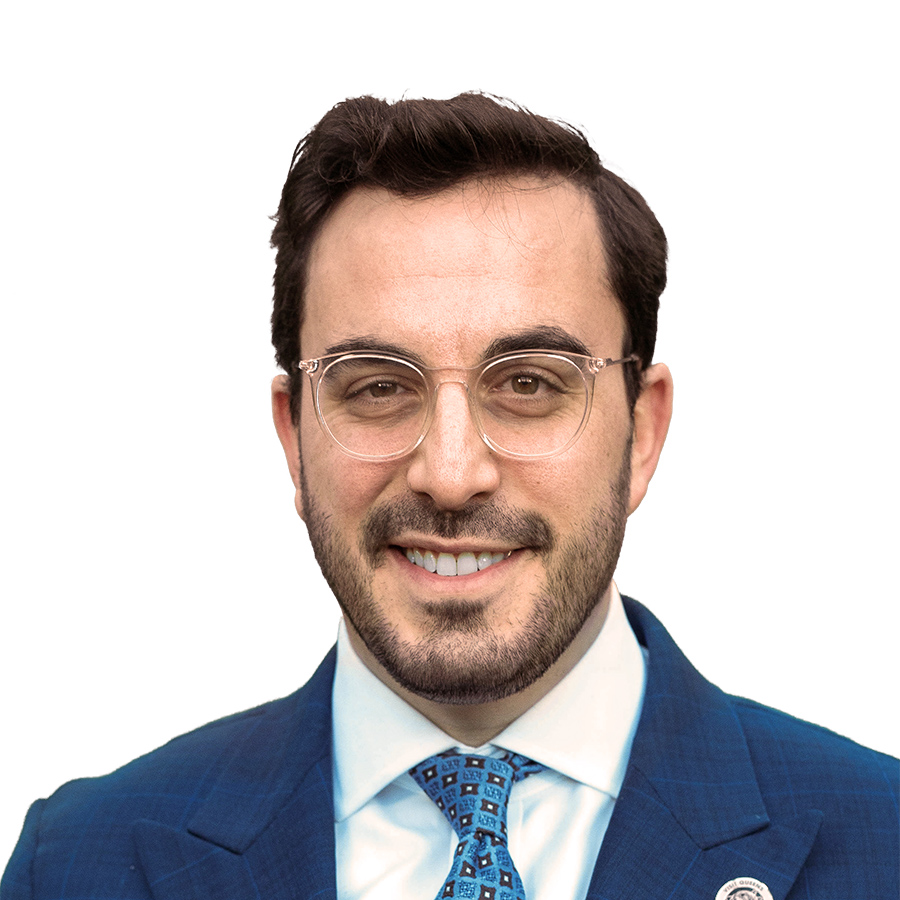
QNS: What, in your opinion, are the top three most pressing issues in your district?
Cyperstein: Public safety, ensuring that the jail is not built in Kew Gardens, getting children back to school as part of our COVID relief effort and ensuring that 3K is brought to my district. In fact, I was just notified by educators in my district that the Department of Education did not make the ZIP codes in our district eligible for 3K at this time despite the fact that we were hard hit by COVID and red zoned for months.
QNS: What aspect of your background speaks best to your abilities as a City Council member?
Cyperstein: I was born, raised, educated, work and volunteer in this district. Living here my entire life, I know the neighborhood issues organically. I am a volunteer first responder for over a decade who has responded to over 5,000 calls to assist my neighbors. I am the founder of a 100 percent volunteer nonprofit organization, overseeing 100 volunteers that assist the Queens community with various non-medical emergency services. We pivoted during COVID to create a task force to bring food and medication to the elderly and those in quarantine. Currently, we are assisting the elderly with rides to their vaccine appointments. I also partnered with a large nonprofit to get food card vouchers for those who lost their jobs during COVID. When a need arises, I don’t just talk about what should be done to remedy it, I jump in to help in any way I can. I’m a doer and I get things done. I always have been and will continue to do so when elected to City Council
QNS: What do you love most about your district?
Cyperstein: I love the people who live here. The unity amongst the community is palpable; it feels like we’re a big family. Just as one would do anything for their family, I will do anything for my family of neighbors who live in CD 29. I feel it is a privilege to live here and all I want to do is make sure that we have the best quality of life in our neighborhood.
QNS: Which one of your opponents will you be ranking second on your ballot and why?
Cyperstein: Right now I believe it is a bit too early to make that determination, but we are looking and planning to speak with all the other candidates.
QNS: District 29 includes Kew Gardens, which the mayor included in the borough-based jail plan. What is your stance on the proposed Kew Gardens jail? If you agree with it, why? If not, is there an alternative that you support?
Cyperstein: I cannot understand anyone who would agree to it. I absolutely oppose the borough-based jail. One of the main reasons I entered this race is to make sure that no jail is built in Kew Gardens. There will not be one day as a council member that I will not speak vociferously against the proposed jail. What was most offensive is that this decision to build the jail was made with no substantial community input, no community voice. As a council member, I will not let that happen. A council member has to listen to the needs of their constituents and it is clear that the constituents of CD 29 do not want a jail in Kew Gardens.
Sheryl Fetik
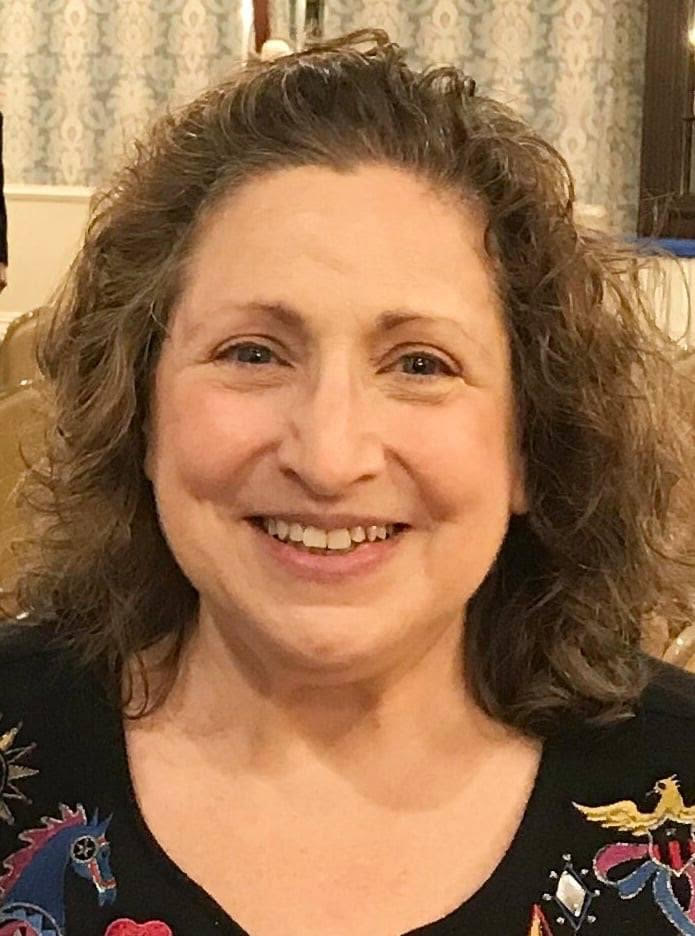
QNS: What, in your opinion, are the top three most pressing issues in your district?
Fetik: We must address people’s real problems and concerns. Government plans must include the needs of residents and small businesses. People are being hurt, because of the pandemic and lockdown. We must help seniors, disabled, small businesses, health care providers, working people and families, homeowners, students. We must reform our health care system. We must listen to the wishes of patients and families, permit patients to stay in their homes, reduce the risk of contagion, change how providers are paid and how they assert authority over patients. COVID and other pathogens enter nursing homes from hospitals and through the staff. We must improve educational opportunities for all, and seek excellence in specialized high schools. We must create affordable housing, provide for our homeless, protect our environment, food and water. We must fight against hate and anti-Semitism.
QNS: What aspect of your background speaks best to your abilities as a City Council member?
Fetik: I have the background, ability and concern to fight for our community. I am not beholden to any powerful interests. I will listen to and represent my constituents. I am a CPA with a legal background and have successfully advocated for people and issues. I was aide to Councilman Katzman and taught accounting and math. A lifelong Rego Park resident and activist, I attended P.S. 139, Russell Sage, Forest Hills High School and Queens College. Influenced by my family of union organizers and activists, my father taught me that “vigilance is the eternal cost of liberty,” to work and study hard, to think independently and to rise above fear. When my father died, I cared for my family and my mother until she died at age 96. I learned how to be an effective advocate for my constituents.
QNS: What do you love most about your district?
Fetik: I grew up in Rego Park and now own my home. I have loved the small town feeling and relative quiet, even though we are located in the geographic center of NYC. I attended good schools, have access to public transportation and enjoy long walks around my neighborhood. Good stores and restaurants are moderately priced. As your council member, I will work hard to maintain and improve our quality of life.
QNS: Which one of your opponents will you be ranking second on your ballot and why?
Fetik: With ranked-choice voting, you may vote for up to five candidates. For my second choice, I will vote for a candidate who will effectively fight for our community. You can count on me to speak up and to fight for you. Please vote for Sheryl Fetik as your number one choice or at least number two.
QNS: District 29 includes Kew Gardens, which the mayor included in the borough-based jail plan. What is your stance on the proposed Kew Gardens jail? If you agree with it, why? If not, is there an alternative that you support?
Fetik: I testified against putting the jail in Kew Gardens at QBH and at City Hall. The plan was rushed through without real analysis or consideration for how residents and small businesses would be affected. Whether or not to close Rikers is a different question than whether we should have large county jails. Many related issues must be thought through. We should retrain police, reform police, not defund police, and give judges more discretion. The mentally ill and homeless should be provided proper housing and services. The existing city proposal would transfer prisoners at great expense, while creating problems for our community.
Aleda Gagarin
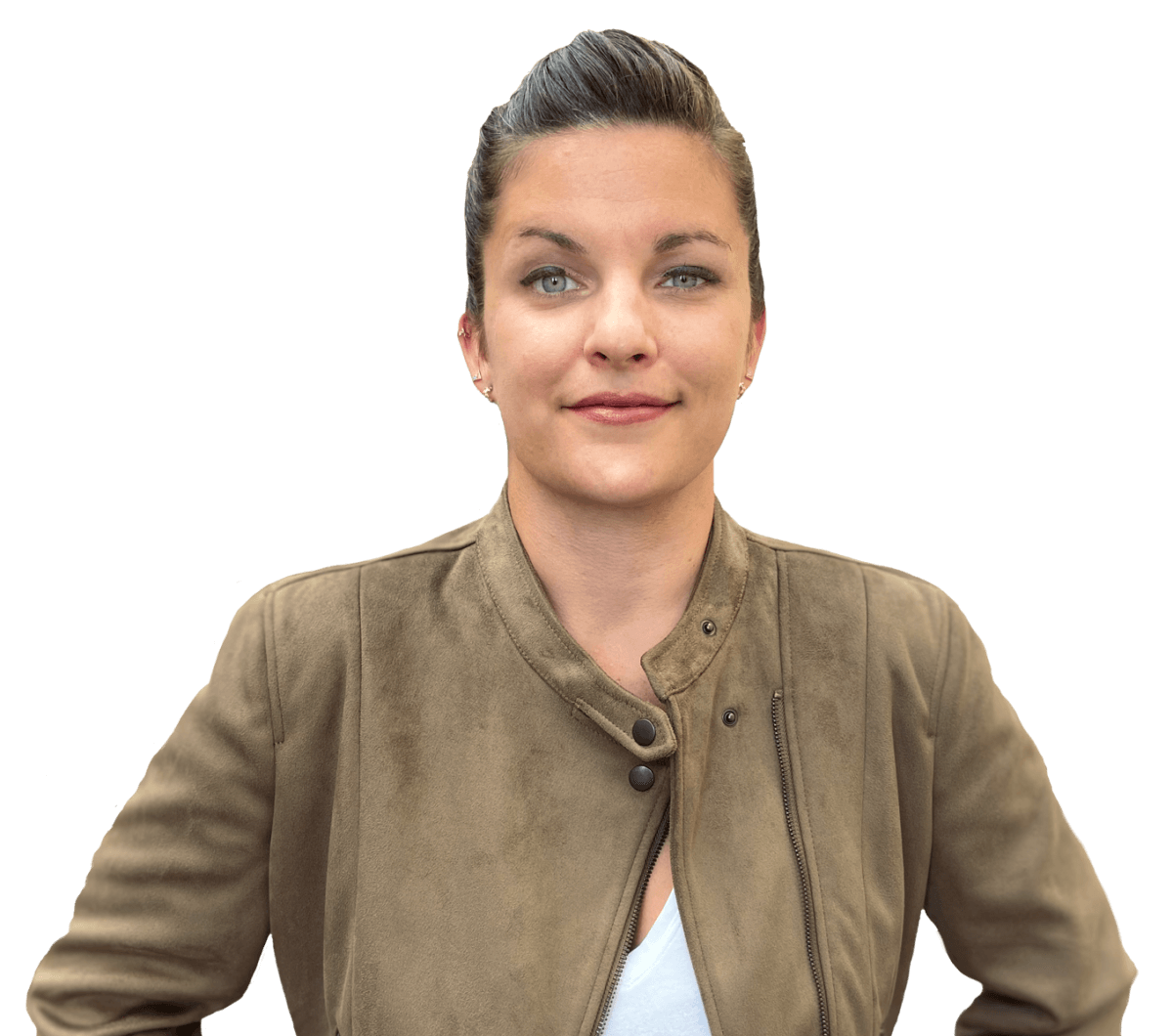
QNS: What, in your opinion, are the top three most pressing issues in your district?
Gagarin: District 29 is full of families working for a better future for their children. A top issue is educational equity and ensuring a quality education for every child. Our district is also home to many elders and disabled neighbors and we need to fight for safer streets and to finish safety improvements on Queens Boulevard. Finally, no new jails! We need to fight the borough-based jail set to come to Kew Gardens; those resources would be better invested in healthy, thriving neighborhoods, saving our small businesses and investing in our hospitals.
QNS: What aspect of your background speaks best to your abilities as a City Council member?
Gagarin: I’m a Queer mother of three, a nonprofit leader, a local CYO basketball coach, activist and community organizer. I have spent my career working to build a better world. In my current role, I’m responsible for securing resources, negotiating budgets and building relationships. I have a master’s degree in urban planning from Hunter College with a focus in community advocacy. I have the knowledge, experience and skillset to create effective change. I’m a coalition builder with a broad base of support; my neighbors asked me to run for this seat. This a community-driven campaign.
QNS: What do you love most about your district?
Gagarin: I love the diversity, the limitless options of delicious food, our parks, our lush trees, my neighbors. I love how many languages you can hear walking down Queens Boulevard or Jamaica Avenue. I love our mom-and-pop shops and how the stores around my street know my kids. I love being blocks from Forest Park, a 15-minute LIRR ride to Manhattan and a quick ride to the beach. Raising my children here has been the privilege of a lifetime. Queens, and our district, is a great love of my life. I will fight to take care of it.
QNS: Which one of your opponents will you be ranking second on your ballot and why?
Gagarin: I haven’t yet decided who I’ll be ranking second. I want to better understand each candidate’s platform and how they’ll fight for a just future for every New Yorker. I’m looking for a candidate who will fight for budget justice, commit to reimagining public safety and investing in healthy, thriving communities, who will fight tooth and nail for working families. I’m looking for someone who will fight to end mass incarceration, expand the city’s Green New Deal, take care of our elders, ensure our immigrant neighbors have the right to vote and protect our neighborhoods from greedy real estate developers.
QNS: District 29 includes Kew Gardens, which the mayor included in the borough-based jail plan. What is your stance on the proposed Kew Gardens jail? If you agree with it, why? If not, is there an alternative that you support?
Gagarin: I do not agree with the borough-based jail plan. I support no new jails. I believe that a New York City that is rooted in care and wellness and that prioritizes addressing root causes is absolutely possible. We’re constantly told we can’t afford investments in our hospitals, our schools, our seniors or workforce development. But now we can afford to spend billions of dollars on incarceration? No. I believe we can do, and be, better. I support a renewable Rikers, investing in healthcare, mental health, our workforce and supportive housing.
Eliseo Labayen

QNS: What, in your opinion, are the top three most pressing issues in your district?
Labayen: The borough jail in Kew Gardens, homelessness and education. The entire process revolving around closing Rikers and creating four new borough jails has been done in a haphazard and, frankly, irresponsible manner. The process to close Rikers was railroaded through City Hall with only one ULURP; the location is within walking distance of four different schools, four major intersecting roadways; and there is a lack of long-term planning as to how this will benefit the community. Homelessness, including those with serious mental illnesses, has only increased across the district whether on our subways, our streets, or near our homes. Finally, a major overhaul is needed with education. Diversity 28 does nothing to invest in under-resourced schools; there is still lead exposure in our school buildings and our schools are not adequately preparing our youth for a college education.
QNS: What aspect of your background speaks best to your abilities as a City Council member?
Labayen: I believe my mix of government experience and grassroots activism speaks best to my abilities if elected as a City Council member. I have a steeped background in policy and coalition building at a federal level through my work on Capitol Hill. I have also been out on the streets advocating for common-sense reform like safer streets and community investment in the face of inaction from our local Council member. If elected, I will not only build coalitions to pass major legislation but use my bully pulpit to fight for a budget that prioritizes my district’s most pressing needs.
QNS: What do you love most about your district?
Labayen: Growing up, I loved how safe I felt being out and about in the neighborhood. I felt no apprehension walking to my school every day at P.S. 101Q, picking up cookies for my family at Bonelle Pastry Shop, or going to play basketball at Austin St. Playground. I loved how safe I felt.
QNS: Which one of your opponents will you be ranking second on your ballot and why?
Labayen: Like the rest of my fellow candidates, I will be focusing on the needs of my community and how to best serve them above all else. There are a multitude of ideas I want to break ground on with the community and look forward to accomplishing them if elected.
QNS: District 29 includes Kew Gardens, which the mayor included in the borough-based jail plan. What is your stance on the proposed Kew Gardens jail? If you agree with it, why? If not, is there an alternative that you support?
Labayen: My stance on the Kew Gardens borough jail is that I am thoroughly opposed. On this issue, there was very little meaningful public engagement, the location is entirely unsuitable, and there is no comprehensive planning for these super-structures years down the road. My alternatives are to either keep Rikers open and invest in the facilities already there or to have borough jails in all five boroughs located away from residential areas. I encourage everyone to take a closer look on my stance on the borough jails at eliseo2021.com.
Lynn Schulman
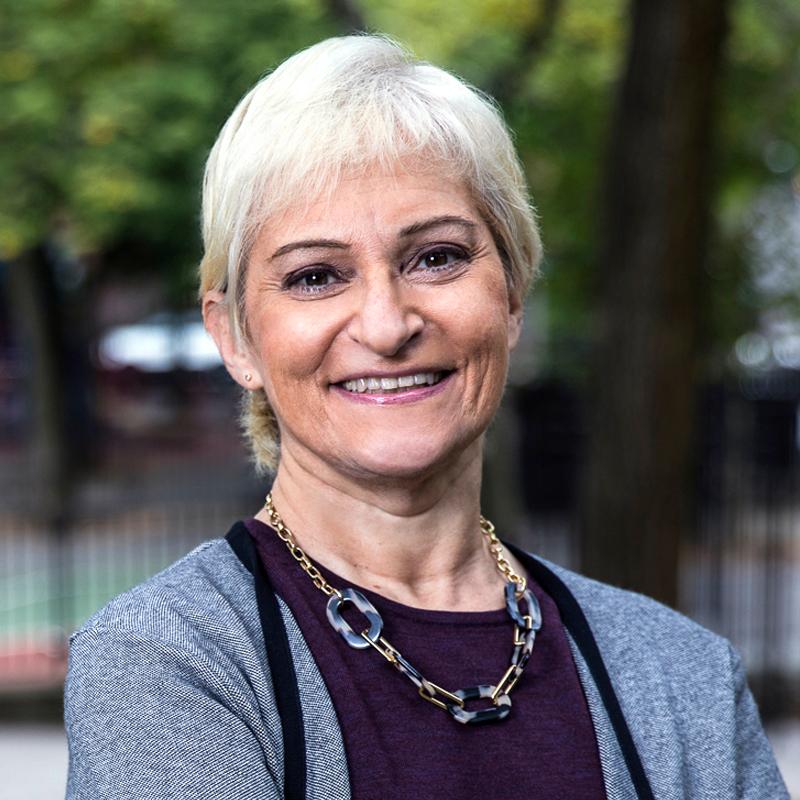
QNS: What, in your opinion, are the top three most pressing issues in your district?
Schulman: Improving healthcare and building hospital capacity. Queens has the least hospital capacity of any borough. COVID-19 exposed the deep vulnerability of Queens hospitals, with deadly consequences. Investing in our local public schools and closing the digital divide. Our children only get one shot at a great education. Sadly, the pandemic has taken a tremendous toll on our children’s learning. We need to ensure all students are given every opportunity to succeed. Supporting our seniors and retirees. Our seniors deserve to live with dignity, respect and support. COVID-19 has exposed the lack of adequate services for our seniors.
QNS: What aspect of your background speaks best to your abilities as a City Council member?
Schulman: I am running because it is time for a change. Now more than ever, we need a progressive leader who knows how to deliver results for the 29th City Council District. I have devoted my career to public service, holding a broad range of leadership positions in government, private industry and the nonprofit arena. My current position working in the office of the NYC Council Speaker, along with previous government roles, including my tenure as an executive within the city’s public hospital system, provide a background that will enable me to build strong coalitions for progressive change in the Council.
QNS: What do you love most about your district?
Schulman: I love the open spaces and parks we have. I would like to expand the amount of green space within District 29 by 2030 by re-engineering our streets to be more efficient including reducing asphalt and concrete wherever possible. I am also a proponent of increasing the allotment of funds to our parks, which are inadequately funded. I am also a supporter of the Queensway project, a community-led effort to transform a blighted, 3.5-mile stretch of abandoned railway in central Queens into a family-friendly linear park and cultural greenway.
QNS: Which one of your opponents will you be ranking second on your ballot and why?
Schulman: I support ranked-choice voting and, like many voters, I will be doing my research and due diligence about the other candidates in this race. In my second ranked choice, I am looking for a candidate who is progressive, accessible to everyone and capable of doing the work. Someone who understands our community and understands how to get things done.
QNS: District 29 includes Kew Gardens, which the mayor included in the borough-based jail plan. What is your stance on the proposed Kew Gardens jail? If you agree with it, why? If not, is there an alternative that you support?
Schulman: The fact is that the Council already voted on the plan and it is moving forward, so we must look to the future. The important thing we need to focus on is making sure that whatever is built works well for the surrounding community. I intend to form a broad coalition of community and criminal justice leaders to ensure that all voices are heard. I am also committed to bringing the community’s concerns to the attention of the next mayor.
Douglas Shapiro
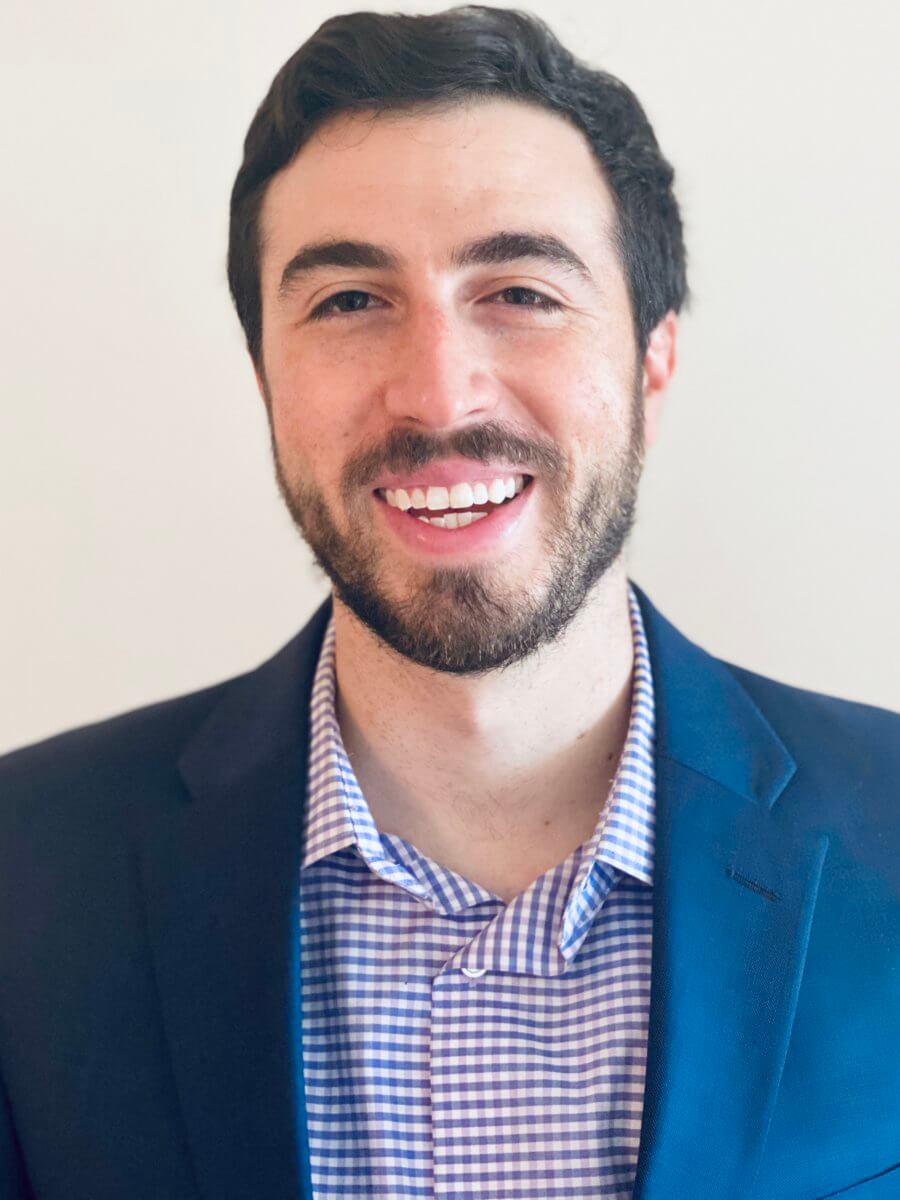
QNS: What, in your opinion, are the top three most pressing issues in your district?
Shapiro: Firstly, access to COVID vaccinations for seniors. While petitioning, I spoke with our 81-year-old neighbor who shared that she still cannot book an appointment in our area. This is an injustice and a moral crisis. Benevolence of neighbors is no substitute for competent city government. Secondly, public safety, especially for our seniors. Everyone deserves to feel safe in their own community. We need more and better lighting in our parks and on our streets. Thirdly, we must commit to a general cleanliness of our neighborhood. Beyond restoring sanitation funding, we must move toward a culture of respecting our common public space.
QNS: What aspect of your background speaks best to your abilities as a City Council member?
Shapiro: I am a budget nerd with a deep background in economic policy (IMF) and finance. The budget is where the city expresses its priorities. I’ll fight for a moral budget for our neighborhood: prioritizing seniors and fully funding healthcare and education. I trust that you want what’s best for our community, just as I do. My approach will be full transparency and honesty. One hundred percent of my donors are individuals, not corporations, not special interests. I will tell you why I vote the way I do. Sometimes, we may disagree. But I’ll actively listen and my door will always be open.
QNS: What do you love most about your district?
Shapiro: It’s our home. It’s where my parents have lived for 40 years. It’s where I attended public school at P.S. 196 and Halsey. It’s where I was bar-mitzvahed. It’s where I have made lifelong friends. It’s where I hope to live for the next 40 years. It’s home.
QNS: Which one of your opponents will you be ranking second on your ballot and why?
Shapiro: Edwin Wong. I believe he would be an effective city councilman and could build alliances with folks from all over the city. I have been grateful to have the opportunity to speak with him and learn more about his vision and I am confident his heart is in the right place.
QNS: District 29 includes Kew Gardens, which the mayor included in the borough-based jail plan. What is your stance on the proposed Kew Gardens jail? If you agree with it, why? If not, is there an alternative that you support?
Shapiro: Changing the location of a jail will not change the treatment of those incarcerated. There is no role for additional jail capacity in our society. The Kew Gardens jail is a public policy and fiscal mistake. Rather than spend $9 billion on borough-based jails, the city should recommit to supporting healthcare, education and vital infrastructure. We desperately need to build a new middle school in our community, not a new jail. Better schools and better roads, not bigger and better jails. How should we improve our community? I want to hear from you. Shapiro2021.com/shapiro4nyc@gmail.com.
Edwin Wong
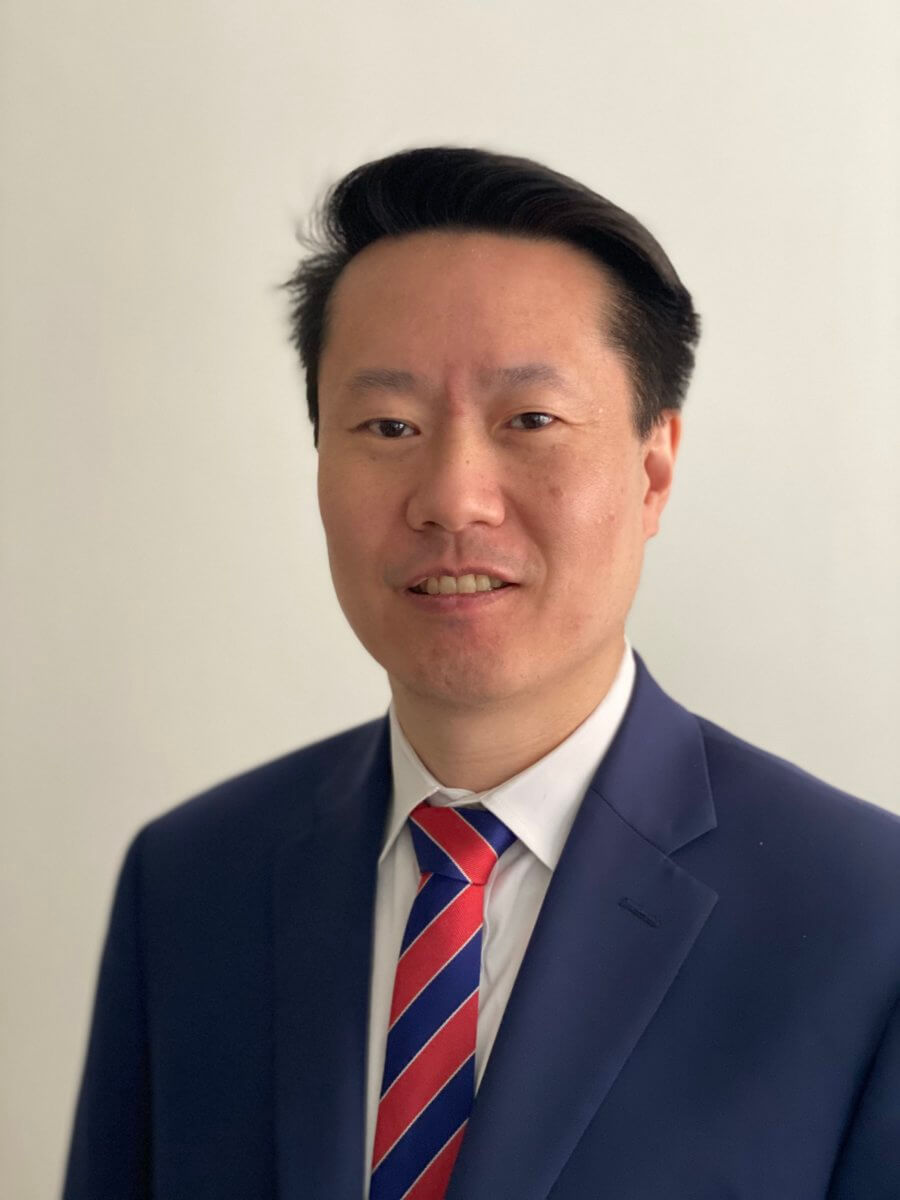
QNS: What, in your opinion, are the top three most pressing issues in your district?
Wong: Small business grants funding that provides support for rent and operating expenses. Stop fines and moratorium on small business fines, especially immigrant-owned restaurants. Credit back small business who have addressed the issue. They should just be given a notice, not fined. [The] city can’t say we support small business and then fine them. Free 3K citywide. City-funded 3K will save money for parents, including single parents, so they can use funds meant for childcare to pay for rent, food, medicine, clothing and other necessities. Universal home care (UHC), for home attendant visits to check in and care for our seniors, our most vulnerable.
QNS: What aspect of your background speaks best to your abilities as a City Council member?
Wong: With 20 years of community advocacy experience and 15 years of supporting businesses, I will bring changes to help us through our fiscal and healthcare crisis. I will bring unity and leadership so we can move forward in the same direction. As president of the Forest Hills Asian Association, we organized and hosted the State of Forest Hills Civic to bring together the community to support local organizations, through volunteering, partnering and getting press coverage. We will have a State of the District each year and listen to concerns from the community, quarterly town halls and participatory budgeting.
QNS: What do you love most about your district?
Wong: What I love most about our district is our selfless resident heroes and our organizations who stepped up during the pandemic and risked their own lives, health and safety for others. From delivering food and snacks to our healthcare heroes, coordinating and delivering PPE, helping to purchase laptops and iPads for school children, not just in our district but throughout the city to those most in need. Helping our seniors with groceries, pharmacy pickups and errands. Donating coats and clothes to the homeless. Contributing to community food pantries so that they can continue help feed our neighbors.
QNS: Which one of your opponents will you be ranking second on your ballot and why?
Wong: Petitioning to be on primary ballot just started on March 2. Candidates to be determined pending signature collection, which will determine if they get on the ballot. We will make a decision once ballot candidates are finalized.
QNS: District 29 includes Kew Gardens, which the mayor included in the borough-based jail plan. What is your stance on the proposed Kew Gardens jail? If you agree with it, why? If not, is there an alternative that you support?
Wong: Opposed to Kew Gardens and borough based jail plan. We need to reduce the number of incarcerated who need mental health services, drug prevention programs and employment opportunities. Some can be referred to do community service and volunteer for a not-for-profit that might be able to employ them after. There should be city funding for free vocational and trade schools for those who seek them. Employment is what is needed, not new jails. If you can build in the boroughs you can rebuild on Rikers and it will save a billion dollars. We do not need new jails.
Donghui Zang
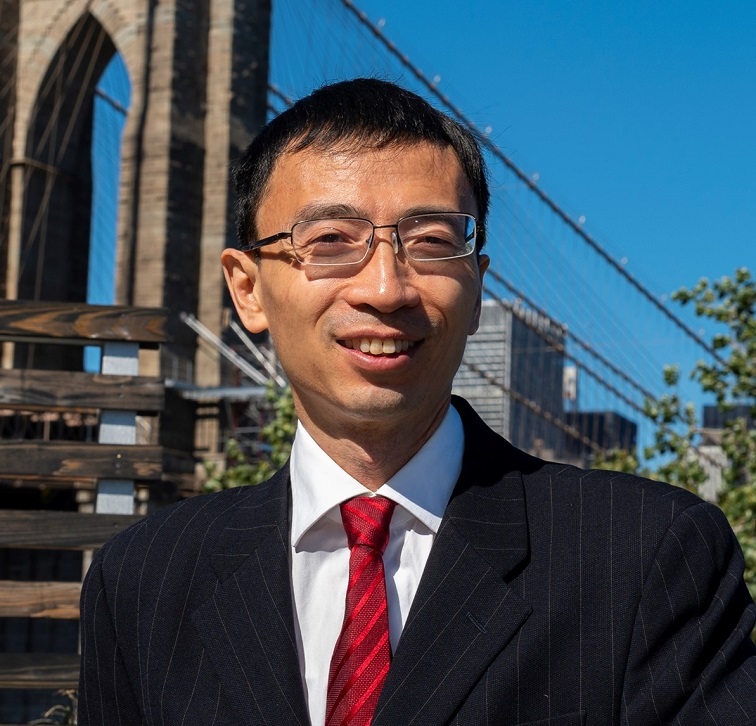
QNS: What, in your opinion, are the top three most pressing issues in your district?
Zang: Clean and safe streets, small business recovery efforts and as a father of two children in NYC public schools, I understand what other parents want and that is quality education for their children.
QNS: What aspect of your background speaks best to your abilities as a City Council member?
Zang: I have a background in finance and I understand budgeting. I will bring my knowledge and skills to the City Council and help to manage and guide our city through its financial deficit.
QNS: What do you love most about your district?
Zang: The diversity of Queens and District 29 is what prompted me to settle in this neighborhood. The different languages that are spoken, the different foods and cultures that exist when I walk around my neighborhood is truly amazing. I enjoy speaking to people and learning about their culture and religion and their views for the future and I have found that many of us share similar values.
QNS: Which one of your opponents will you be ranking second on your ballot and why?
Zang: It is too early to make the decision now. I am looking forward to hearing from all the candidates.
QNS: District 29 includes Kew Gardens, which the mayor included in the borough-based jail plan. What is your stance on the proposed Kew Gardens jail? If you agree with it, why? If not, is there an alternative that you support?
Zang: No, I do not support the continuation of the proposed Kew Gardens jail plan. Firstly, NYC is currently fighting to recover from this unexpected and unprecedented pandemic, resulting both in the loss of loved ones and in financial loss. The mayor revealed that the city incurred $5.9 billion of unexpected costs relating to the pandemic and unemployment is at 20 percent, all while losing $10.5 billion in tax revenue from fiscal year 2020 to fiscal year 2022. Some federal aid will help the city to recover but we must be fiscally responsible and use our resources wisely. Back in 2019, hundreds of residents, myself included, protested in front of Queens Borough Hall against the plan to erect a skyscraper jail in Kew Gardens, which would cost us roughly $2 billion. This is not fiscally responsible. The problems that existed on Rikers Island will continue to exist regardless of the location. We must address the root issues at the Department of Corrections and provide better training to corrections officers and provide additional mental health counseling, violence interruption and substance abuse programs at the jail. We must also work diligently to speed up case processing and make the system work faster and more efficiently so that people waiting for their day in court are not stuck waiting for a year.

